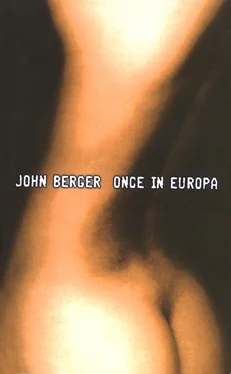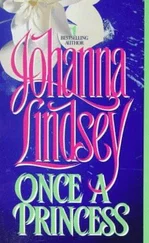John Berger - Once in Europa
Здесь есть возможность читать онлайн «John Berger - Once in Europa» весь текст электронной книги совершенно бесплатно (целиком полную версию без сокращений). В некоторых случаях можно слушать аудио, скачать через торрент в формате fb2 и присутствует краткое содержание. Год выпуска: 2014, Издательство: Bloomsbury Publishing, Жанр: Современная проза, на английском языке. Описание произведения, (предисловие) а так же отзывы посетителей доступны на портале библиотеки ЛибКат.
- Название:Once in Europa
- Автор:
- Издательство:Bloomsbury Publishing
- Жанр:
- Год:2014
- ISBN:нет данных
- Рейтинг книги:3 / 5. Голосов: 1
-
Избранное:Добавить в избранное
- Отзывы:
-
Ваша оценка:
- 60
- 1
- 2
- 3
- 4
- 5
Once in Europa: краткое содержание, описание и аннотация
Предлагаем к чтению аннотацию, описание, краткое содержание или предисловие (зависит от того, что написал сам автор книги «Once in Europa»). Если вы не нашли необходимую информацию о книге — напишите в комментариях, мы постараемся отыскать её.
Once in Europa — читать онлайн бесплатно полную книгу (весь текст) целиком
Ниже представлен текст книги, разбитый по страницам. Система сохранения места последней прочитанной страницы, позволяет с удобством читать онлайн бесплатно книгу «Once in Europa», без необходимости каждый раз заново искать на чём Вы остановились. Поставьте закладку, и сможете в любой момент перейти на страницу, на которой закончили чтение.
Интервал:
Закладка:
The eagle could have come! she screamed, and pecked her poor eyes out!
She ordered me to pick some nettles, and stood over me whilst I did so. I remember I tried to protect my fingers by pulling down the sleeves of my pullover to cover my hands. The bunch of nettles I’d picked lay on the bench beside the water tap outside the door, waiting for my father to return.
You have to punish Odile, my mother said to him when he arrived and she handed him a cloth to hold the nettles with. She pulled up my pinafore. I was wearing nothing underneath.
Father stood there, still as a post. Then, picking up the nettles, he held them under the tap and turned on the water.
Like this it’ll hurt less, he said. Leave her to me.
My mother went indoors and my father flicked the water from the nettles onto my backside. Not a single nettle touched me. He saw to that.
I thought I would be frightened and I am not. Since he was a small boy he was a son I could trust. Christian never did crazy things like the others and he was always reassuring. He inherited a lot from his father. I’ll never forget, for as long as I live, the time when he grew his first moustache. I couldn’t help crying out, he looked so much like his father. Perhaps the craziest thing Christian has ever done, at least amongst the things I know about, is to bring me up here. You’re sure you’re ready, Mother? Yes, my boy, I answered. And he screwed up his face as if he were in pain. Perhaps he was laughing.
Three thousand metres above the earth — he said he could climb to five thousand, I don’t know whether he was boasting — with nothing but air between us and what we can see below and I’m not frightened! The moment our feet left the ground, the wind was there. The wind is holding us up and I feel safe, I feel — I feel like a word in the breath of a voice.
There was a riddle I liked as a child: four point to the sky, four walk in the dew and four have food in them; all twelve make one — what is it?
A cow, answered Régis, my elder brother, sighing loudly to show he had already heard the riddle many times before.
Odile, how is it a cow? asked poor Emile, my younger brother. People would take advantage of Emile all his life. His laziness was not so much a sin as a sickness. Each time I was pleased that Emile couldn’t remember the riddle; it offered me the chance of explaining.
A cow has two horns, two ears pointing up, four legs for walking on, and four teats!
Six teats! cried Régis.
Four with milk in them!
Mother encouraged Régis to work with the furnaces because she was worried about Emile; it was going to be difficult for Emile to find a job anywhere, and so it made more sense if Emile was the one to stay at home with Father.
Father was against any son of his working in the factory. Régis would do better to go to Paris like men had done as long as anyone could remember. Long before the Eiffel Tower, long before the Arc de Triomphe, long before factories, they had gone to Paris to stoke fires and to sweep chimneys, and in the spring they had come back, money in their wallets, proud of themselves! Nobody could be proud of working — there. Father pointed with his thumb out of the window.
Times change, Achille, you forget that.
Forget! First, they try to take our land, then they want our children. What for? To produce their manganese. What use is manganese to us?
When Father was out in the fields, Régis said: He doesn’t know what a stupid old man he looks, Papa, leading his four miserable cows through a factory yard four times a day!
We’re over the factory. When we veer to the north I can smell the fumes in its smoke.
One night I went out to lock up the chickens and I found Father by the pear tree staring up at the sky and the flames flicking out of the top of the tallest chimney stack, almost half as tall as the cliff face behind it.
Look, Odile, he whispered, look! It’s like a black viper standing on its tail — can you see its tongue?
I can see the flames, Papa, some nights they’re blue.
Venom! he said. Venom!
Whenever I went near the factory, I saw the dust. It was the colour of cow’s liver, except that, instead of being wet and shiny, it was a dry kind of sand: it was like dried liver, pulverised into dust. The big shop was taller than any pine tree and when one of the furnaces was opened, the hot air as it rose would make a draught so that high up, by the topmost girders, a breeze would blow the dust off all the ledges and you’d see a trailing cloud like a red veil hiding the roofing. This dust astonished and fascinated me. It turned the hair of all the men who didn’t wear hats slightly auburn.
The men who worked in the factory smelt of sweat, some of them of wine or garlic, and all of them of something dusty and metallic. Like the smell of the lead in a pencil when it’s sharpened. For my work at school I had a pencil sharpener in the form of a globe, it was so small you couldn’t tell the countries, only the difference between land and sea.
White the page of the world below. Like the traces of tiny animals in the snow, the scribbles of what I knew as a child. Nobody else could read them here. I can see the roof, the pear tree by the shit-house, the byre we stored wood in with hives on the balcony — the basin where I washed sheets for Mother is filled with snow, for there’s no trace of it — the garden beneath the windows, the little orchard, and surrounding all, as a floor surrounds a cat’s saucer, the factory grounds. Every year a man came to the school to explain to us children why the factory was built where it was and why it was the pride of the region. Men had come from New York, he said, to visit it! Then he drew on the blackboard the course of the river. His was white on black and the one below is black on white. The river goes through the factory. The factory squats on the river like a woman peeing. He didn’t say that.
Around the beginning of the century, he told the schoolchildren, men everywhere in the world were dreaming of a new power which was the power of electricity! This new power was hidden in our mountains, in their white waterfalls. They called the waterfalls White Coal! He made it look simple on the blackboard. Engineers canalised the water in cast-iron pipes which were two metres in diameter. They let the water, once captured, fall vertically until it acquired a pressure of 100 kilos per square centimetre, and with this pressure the water of our waterfalls turned giant wheels in turbines, which, turning, produced nine million kilowatts of electricity per hour. The beginning of electrometallurgy in Europe! he cried. Vive la République!
Its work done, the river rejoined its course and made its way to the sea. Do the fish go through the turbines? a child asked. No, no, dear, answered the man. Why not? We have filters.
Our house had three rooms. The kitchen where everything happened and I did my homework. The Pele where my two brothers slept. And the Third Room where my parents and I slept. In the summer, after we’d brought the hay in, my brothers sometimes liked to sleep in the barn. Then I’d move into the Pele and sleep there alone. Opposite the bed hung a mirror with a black-spotted glass. When I couldn’t sleep I lay there and talked to myself. I talked to my little finger. What was in the Beginning? I asked. Silence. Before God created the world and there was no earth, no manganese, and no mountains, what was there? The finger wagged. If you see a spider on a table and you brush him off, the table’s still there, if you take the table outside, there’s still the floorboards, if you take up the floorboards there’s still the earth, if you cart the earth away there’s still a sky with stars on the other side of the world, so what was there at the beginning? The finger didn’t reply and I bit it.
Читать дальшеИнтервал:
Закладка:
Похожие книги на «Once in Europa»
Представляем Вашему вниманию похожие книги на «Once in Europa» списком для выбора. Мы отобрали схожую по названию и смыслу литературу в надежде предоставить читателям больше вариантов отыскать новые, интересные, ещё непрочитанные произведения.
Обсуждение, отзывы о книге «Once in Europa» и просто собственные мнения читателей. Оставьте ваши комментарии, напишите, что Вы думаете о произведении, его смысле или главных героях. Укажите что конкретно понравилось, а что нет, и почему Вы так считаете.












